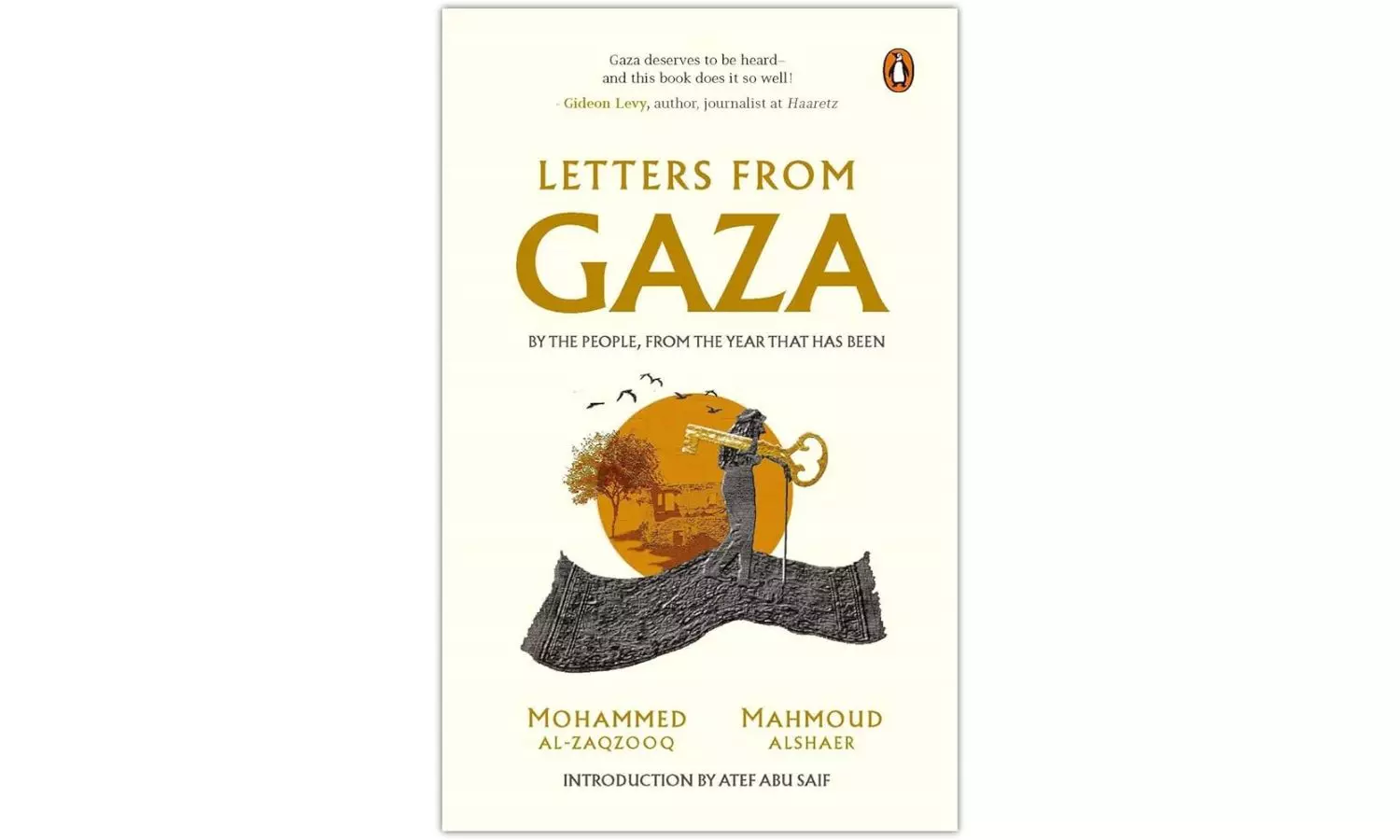Book Review | ‘I Write Lest I Succumb to Savagery’
The haunting title for this piece is taken from one of the editors, Al-Zaqzooq’s own heart-wrenching prose account of the 106 days in 2023

Letters from Gaza is an unusual 200-page book for our unusually fraught times — part an anthology of short prose and poetry, part-epistle, part memoir, part creative non-fiction, part reportage, part assemblage of memory-fragments, part-treatise, and part-documentary script. It is sensitively edited by Mohammed Al-Zaqzooq and Mahmud Alshaer (with an introduction by Atef Abu Saif). Written and recorded “by the people, from the year that has been”, the book offers a raw undiluted account of both the exterior and interior landscape of the people whose country has been destroyed by relentless bombing, hatred and apathy.
The haunting title for this piece is taken from one of the editors, Al-Zaqzooq’s own heart-wrenching prose account of the 106 days in 2023. He wrote it “after a great deal of inner struggle … between acceptance and rejection, belief and denial, and questioning whether it would be worth the effort.” This is one of the many pieces presented in this book that defies classification. Easy classification as an idea in terms of genre and form is impossible as the writers here have chosen to use a fluid and sometimes fragmented form, reflecting what is around them — brokenness through endless destruction of lives, livelihoods and properties.
Therefore, you’ll see that the key unifying style or motif in this book is that of ‘fragmentation’— whether in prose, poetry, dialogue, hallucination, diary entries — or in half-uttered whispered dialogues that are cut short to monologues, and then to annihilation and silence. This book is an urgent testament to the fact that individual and collective human voices cannot ever be silenced.
Any act of oppression, violence or war to mute a nation will only result in a throwback at the perpetrators — screams of raw emotions and words. In the long run, we see the power of words come to the fore against guns and vested interested parties and nations who fund for profit, an open genocide with sheer brazenness. Words are important to assuage our souls, to record our histories both private and public — words act as non-violent means of resilience, dissent and hope.
“Every time I leave the house, / I bid him farewell / for I may not come back” writes Haider al-Ghazali in a moving and ironic poem full of understated pathos. Or take the poem by Anees Ghanima, ‘I Break the Day, Unbroken’: “I pluck a thorn from rotting flesh, / and swallow carrion whole, / for I know — from the bitterness of my tongue — / I am not the lamb of the day.” What a powerful four-line opening to a poem! But he tries his best to end the piece with hope, with a prayer — “let the crimson flood the body, / … let the calamity fall silent, / forever.”
Here’s my eponymous poem, ‘Gaza’, from Fractals: “Soaked in blood, children, / their heads blown out / even before they are formed. // Gauze, gauze, more gauze — / interminable lengths / not long enough to soak // all the blood in Gaza. / A river of blood flowing, / flooding the desert sands // with incarnadine hate. / An endless lava stream / on a parched-orphaned land, // bombed every five minutes / to strip Gaza of whatever / is left of the Gaza strip. // Tiny lives snuffed out, / faces defaced, eyes vacant — / a new holocaust continues // unabated. The world weeps / red, mourning — / an unceasing blood-song.”
As one of the contributors, Elias Khoury writes, “Gaza and Palestine have been brutally bombarded for almost a year now, … [yet, the people] are steadfast. Unshakable. They are the model from which I learn, every day, to love life.” Where there is a glimmer of humanity and love, there is always hope. And a book like Letters from Gaza offers and affirms that in all of us.
Sudeep Sen is an award-winning poet and critic
Letters from Gaza
Edited by Mohammed Al-Zaqzooq and Mahmud Alshaer
Penguin
pp. 250; Rs 599
